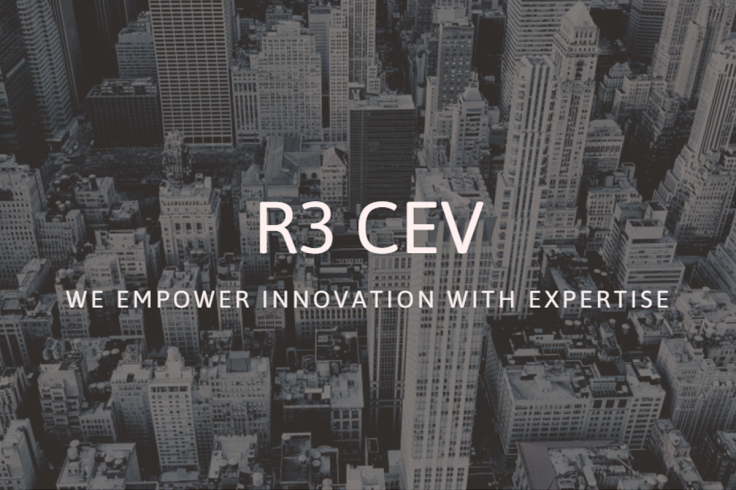R3 blockchain architect Ian Grigg: 'It's not a binary choice between fully permissioned or fully open'

Ian Grigg, architecture consultant at the R3 distributed ledger consortium with 42 big banks on board, said blockchains in the enterprise arena "may not have to be fully controlled walled gardens", provided one can trust sources of information and the provenance of those on the network.
Grigg was a panellist on a session looking at smart contracts hosted by City law firm Norton Rose Fulbright. He was joined by leading blockchain experts Dr Lee Braine of Barclays Investment Bank; Robert Sams, CEO of Clearmatics; and Leanne Kemp, CEO and founder of Everledger.
Grigg said: "It's not an either or – it's not a binary choice as to whether you go fully permissioned or fully open. There are gaps in between. For example you can have a system, a chain if you like, or a product, whereby anybody can go onto the system, but you are known on the other side.
"So if I am doing a trade with some counterparty, I will be able to check the provenance of that person very clearly because that's what the technology provides; it provides information about who that person is and if we have appropriate systems in place we can get good information on who that person is.
"So it may not need to be a fully controlled walled garden if I trust the source of the information that's coming from the other side. That becomes interesting if you have got, for example, a consortium of banks, or a consortium of companies working together, you can't really do appropriate due diligence on everybody. You'll always know that you are talking to somebody on the other side of the world so you need the information on that person.
"It's not getting into the chain that's the issue, it's finding out who you are talking to. Once you have that, you have the ability to layer different industries together on the same fabric, if you like, and you don't have to worry too much about KYC and AML on the entry point; you do it on the trade point. So there are a range of options here."
Grigg said the notion of having one single record or single source for a record – a so-called golden copy or golden record – is "a bit of a game changer if you can make it happen".
"How we do that is a very complicated task but what we can say is it's part and parcel with putting contracts and smart contracts into the distributed ledger," he said.

IBTimes UK asked Grigg if the R3 consortium was looking to optimise clearing and settlement in the direction of real time settlement. T+0 is often touted as an efficiency promise of blockchains. However, implementing real-time settlement would upset the apple-cart for an army of intermediaries and brokers and would potentially remove liquidity from markets, impacting areas like short selling, for instance, by leaking share-trading information to markets on a grand scale.
Grigg said: "I suppose the technical answer is that some consortia of banks are looking at this issue very clearly, very carefully. However there is no position at the current time on how to handle it, and there is no necessary position that one party might do it, or another party might do it or how to do it.
"There are a lot of different answers – in a world where there are quite a lot of consortia involved. For example the stock exchange is very clearly involved in this, the clearing houses and various other groups are all facing the same questions from a technological point of view and definitely from a political and governance point of view."
Grigg said it would be premature to try and predict how this was going to enfold, adding that "a lot of people are backing away from the big picture of clearing and settlement going to T+0, or seconds, and saying okay what are the use cases where we can find that low-hanging fruit and get something up and going and then spread out from there. I think that's the more practical aspect of what's going on".
He said there is dichotomy between the technology, which is now quite capable of doing clearing and settlement in T plus seconds and has been for years, and the governance world. "How do you bring that into the real world? If you look at cash for example: we know how to do cash, we have known how to do cash for a long time. The difficulties are all in the governance and politics and the business arrangements that already exist.
"How do we move forward step by step to the point where we put in new cash systems. The difficulties are not in the technology. On the other hand, if you go to aspects such as diamond trading or complicated cross border stuff, you now start to get into difficult technical issues because some of those issues are quite hard to deal with, if you have to integrate them into legacy systems.
"So you have two different areas marching together and unfortunately they don't often see eye to eye as to where the problems are. We live in very interesting times and it's going to be too hard to predict how it all falls out," said Grigg.
Some panel time was given over to pinning down what exactly is meant by smart contracts. Sams of Clearmatics offered a hype-busting definition. He said: "What is a smart contract? I guess it's the opposite of a dumb contract, which is presumably written by lawyers. One of the things is the terms of these contracts is executable by machines. But if that's all smart contracts are, then all the interest in this space is a little bit surprising because clearing houses have been doing smart contracts for decades and so for that matter have vending machines."
Sams said the concept is conceived of as new and revolutionary because of the idea that it emerged from the cyberpunk community, cryptocurrency running on public blockchains that allow economic value to transfer between anonymous parties, and the whole system is autonomous of legal institutions and real world law.
"All we are talking about is using automation to make the performance of contracts more efficient and that's not a revolutionary discipline; it's something that we have been doing in various ways for a long time. I think if there is something that's interesting in this space with the technology it is the introduction of this concept of distributed consensus.
"So instead of having a calculation agent being assigned to be a trusted third party to perform a contract on a server, we have the ability to have groups of organisations come together to collectively and redundantly perform these computations on distributed networks. I think there are some very interesting commercial and legal implications of contract execution in that way."
© Copyright IBTimes 2025. All rights reserved.






















